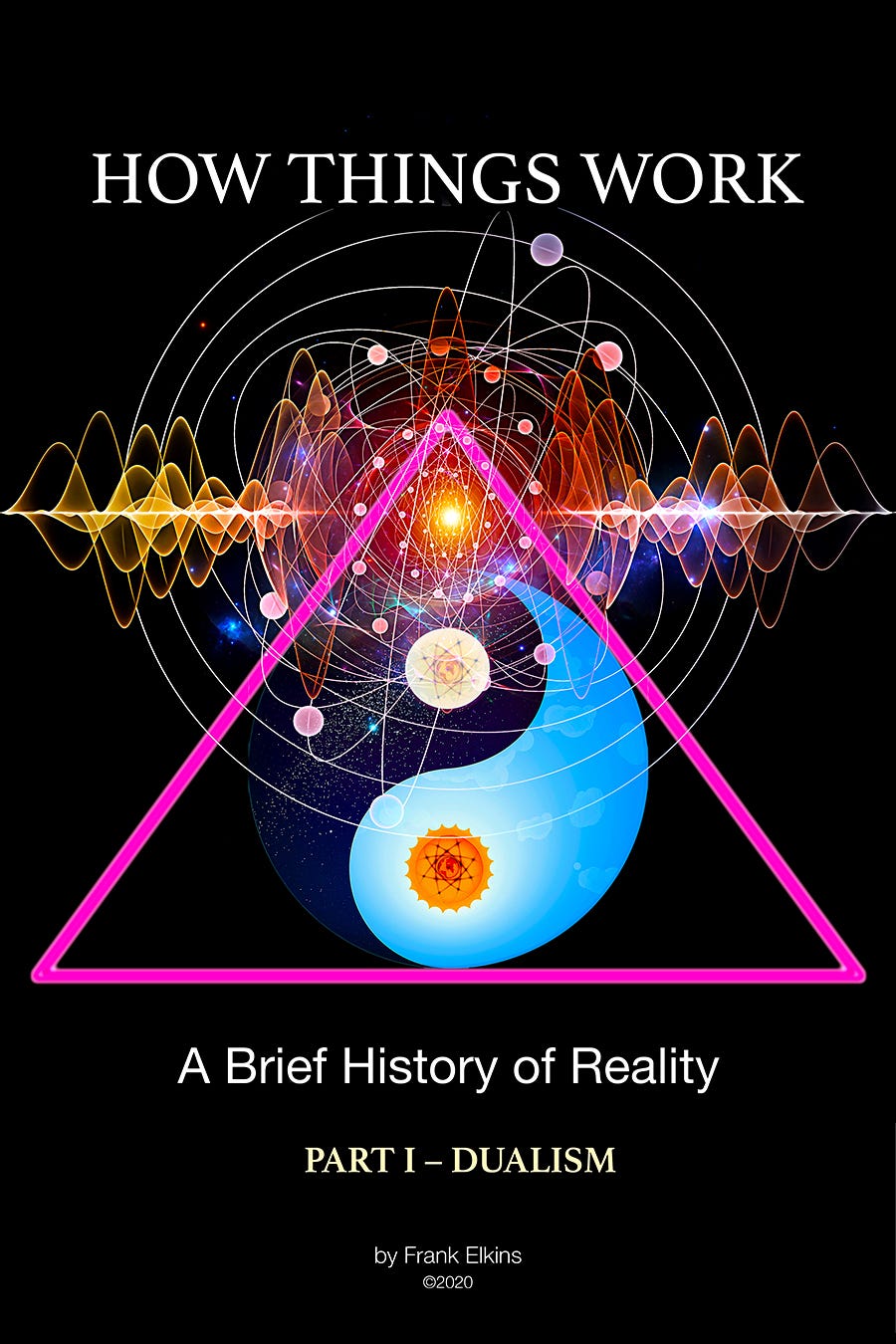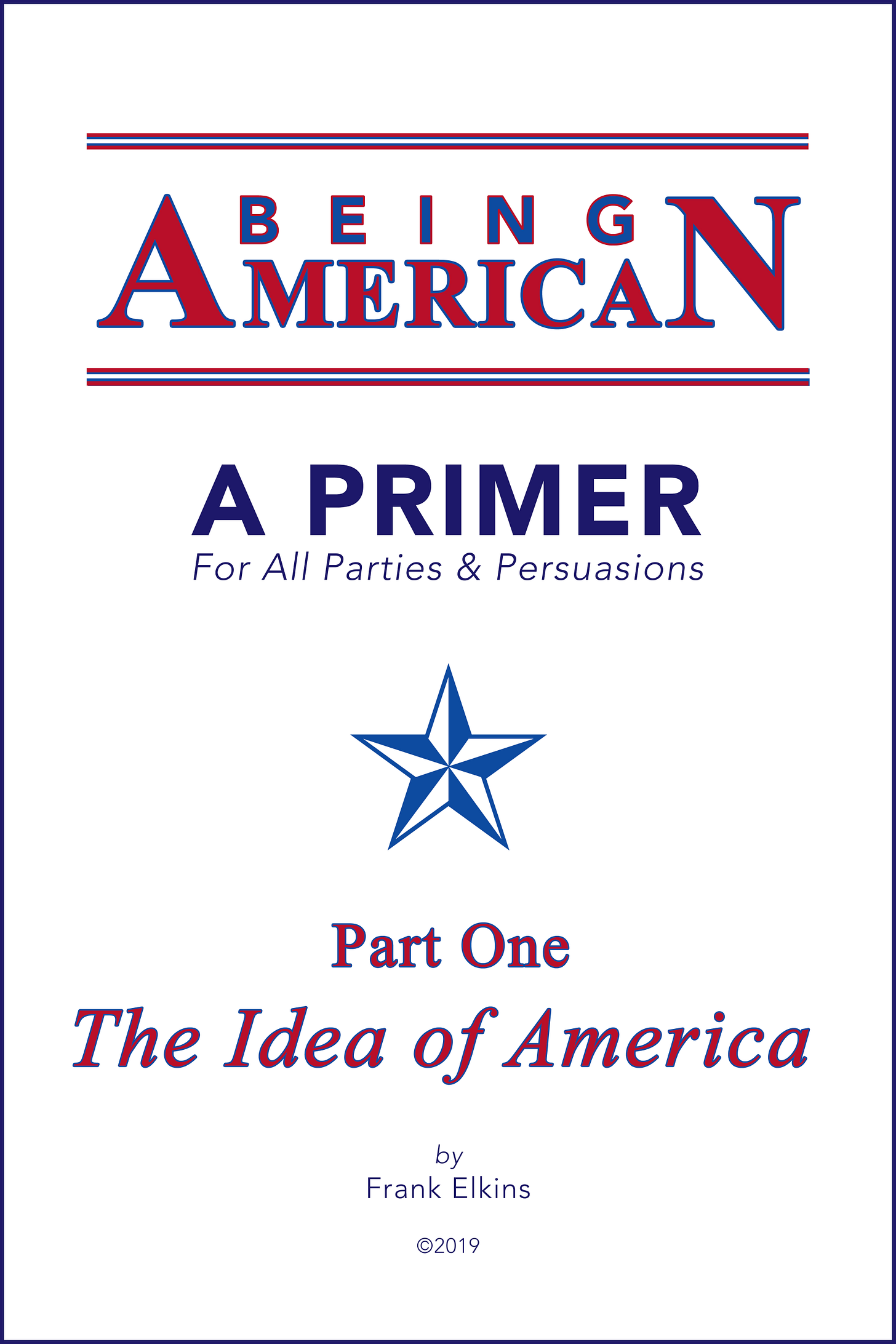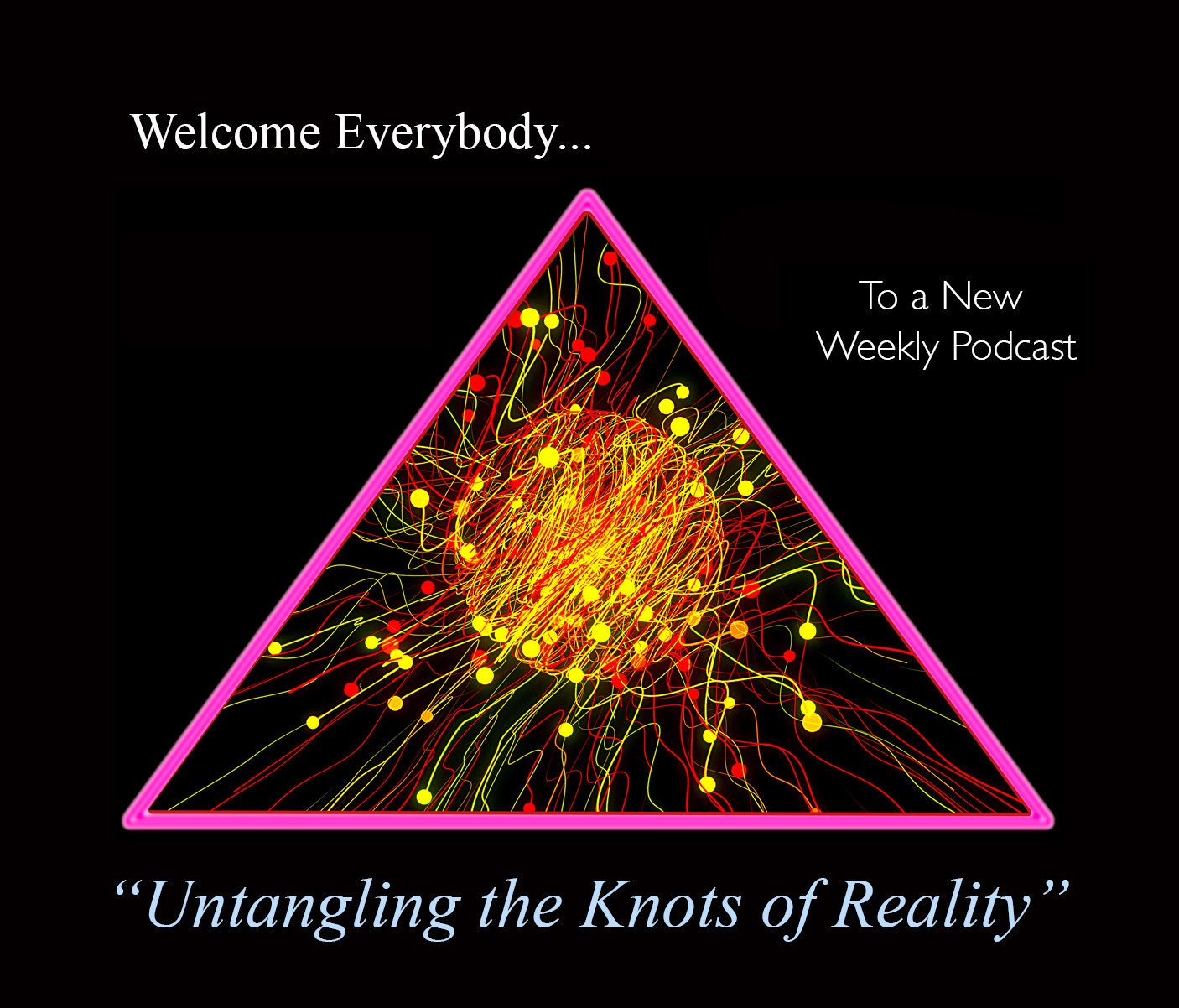SPECIAL EDITION: How Things Work – A Brief History of Reality
The Foundational Flaw of America: Part 1 – A Disregarded Self Evident Truth
Be A Part of the Conversation!
Tuesday, April 19, 2022
“What, to the American slave, is your Fourth of July?” – Frederick Douglass
SPECIAL EDITION: “The Foundational Flaw of America” Part 1 – A Disregarded Self Evident Truth (Based on excerpts from “Being American: A Primer for All Parties & Persuasions”)
PREFACE
“Every civilization is founded on sins - every single one. Dispossession, violence, appropriation. What distinguishes civilizations are the ones who rise above it.”
― Charles Krauthammer
Welcome Everybody!
Having considered the ideas and values of the Age of Reason makes the practice of slavery in America seem even more atrocious. The consequences of that decision reverberated not only throughout the United States, but the entire world. The stain of slavery on America greatly devalued the ideals of the Enlightenment originally intended for the new nation. Slavery was not reasonable, or enlightened, by any rational or empirical standard. Therefore, the original hypocrisy of the founding fathers seems incomprehensible. This three-part Special Edition Newsletter addresses that original foundational flaw and the legacy of slavery in America.
A Disregarded Self-evident Truth
“A house divided against itself, cannot stand. I believe this government cannot endure, permanently, half slave and half free. I do not expect the Union to be dissolved — I do not expect the house to fall — but I do expect it will cease to be divided. It will become all one thing or all the other. Either the opponents of slavery will arrest the further spread of it, and place it where the public mind shall rest in the belief that it is in the course of ultimate extinction; or its advocates will push it forward, till it shall become lawful in all the States, old as well as new — North as well as South.”
― Abraham Lincoln June 16, 1858
Using the words of Jesus from the New Testament, Abraham Lincoln reflects on a self-evident truth amazingly disregarded by the original founders of America: You cannot promote liberty and accept slavery. This original sin corrupted the new nation in ways the founders could never fully understand or anticipate; ultimately making America the testing ground for the very ideals upon which it had been established. In what rational, enlightened mind could slavery be equated with equality, liberty, and the pursuit of happiness? Less than a hundred years after establishing the United States of America, the crack from that foundational flaw incorporated into its existence had widened and was now in the hands of the 16th President to repair.
“…the founders allowed the foundational flaw of slavery to become forever interwoven into the fabric of the American Idea…”
Having abandoned the possibility of creating a “perfect” form of government and settling for something “far less perfect," the founders allowed the foundational flaw of slavery to become forever interwoven into the fabric of the American Idea, cementing the incompatibilities of liberty and bondage into the pristine possibility of the American Dream. And like a cancer, this contradiction would metastasize and infect every aspect of the nation’s body and soul, until the very existence of the original possibility itself lie upon the verge of death.
CONSIDERATION #27: America’s Foundational Flaw – A Disregarded Self Evident Truth
The Legacy of Slavery in America
“Who talks most about freedom and equality? Is it not those who hold the bill of rights in one hand and a whip for affrighted slaves in the other?”
― Alexander Hamilton (newspaper article, 1791)
There is no mention of slavery in the original Constitution. In fact, the framers went to extraordinary measures to make sure no trace of the word or institution could be found there. However, it could still be found in America. The Constitution ignored the question of slavery completely; neither acknowledging its legality nor declaring its illegality. The Constitution represented a document in which the actual institution of slavery simply didn’t exist. But, in the land of the free, slavery did exist. Why?
In the abstract world of Enlightenment philosophy, the application of rational principles was considerably easier than actually trying to implement them into an imperfect world. The purposes of New England, Middle, and Southern colonies were easily united under the banner of defeating England and gaining independence. However, when the war was over, and the time came to actually construct the new enlightened nation, the understanding of enlightenment and reason began to vary depending if you were from the “North” or the “South.” Human nature began to replace idealism.
“We have seen the mere distinction of colour made in the most enlightened period of time, a ground of the most oppressive dominion ever exercised by man over man”.
― James Madison (Constitutional Convention – 1787)
The ratio of founders who at one time owned slaves, to those who never owned slaves, was two-to-one. However, many ex-slave owners, such as Benjamin Franklin, changed their view not only on slavery, but more importantly on the humanity of African Americans, and became serious abolitionists. Franklin’s disgust with the institution only grew over time, causing him to declare: "Slavery is… an atrocious debasement of human nature." In the discussions regarding liberty and equality that occurred during the founding of the nation, many of the original founders were forced to reconsider their own personal views on the reality of slavery, and its place in America.
“I wish that [the plight of the Indians] was the only blot in our moral history, and that no other race had higher charges to bring against us. I am not apt to despair; yet I see not how we are to disengage ourselves from that deplorable entanglement, we have the wolf [slavery] by the ears and feel the danger of either holding or letting him loose. I shall not live to see it but those who come after us will be wiser than we are, for light is spreading and man improving. To that advancement I look, and to the dispensations of an all-wise and all-powerful providence to devise the means of effecting what is right.”
– Thomas Jefferson
Here, Jefferson basically admits their failure to deal with slavery and puts his hope of finally eliminating the evil in the hands of God and wiser Americans in the future. Although he clearly recognizes that slavery is completely incongruent with what he instituted in the Declaration of Independence, he still did not free his slaves upon his death. Perhaps we should take some consolation in Jefferson’s belief that people were improving and that the light that was lit was spreading, and that the potential of the future outweighed even the sins of the past. We are the future he was talking about.
Although a slave owner from Virginia, Washington understood that slavery was an institution that should not flourish in America and that it was incompatible with who he and the nation were:
Not only do I pray for it, on the score of human dignity, but I can clearly forsee that nothing but the rooting out of slavery can perpetuate the existence of our union, by consolidating it in a common bond of principle.
― George Washington (Retrospections of America, 1797 – 1811)
Clearly both Jefferson and Washington saw that slavery was not compatible with the United States and, at some point, would have to be abolished for the nation to survive. However, while Jefferson seemed to recognize the philosophical problem, Washington took it more personally.
I can only say that there is not a man living who wishes more sincerely than I do to see a plan adopted for the abolition of slavery.
― George Washington – 1835
It becomes clear that most of the founders knew that slavery was wrong and not compatible with the new world they had created. Ultimately slavery meant dehumanizing an entire race by forcibly holding them in bondage while denying them their inalienable human rights to life, liberty, and the pursuit of happiness. Everything the patriots had fought to protect and expand.
“As much as I value an union of all the states, I would not admit the southern states into the union, unless they agreed to the discontinuance of this disgraceful trade [slavery], because it would bring weakness and not strength to the union.”
― George Mason – 1788
In the end, the founders needed the Southern states in order to ratify the new Constitution and chose to focus on the immediacy of creating and establishing a new nation, leaving the nightmare of slavery to posterity.
However, after fighting a war based on the declaration of human equality backed up by inalienable rights, the scab of ignorance had been scratched and scraped; the realization that slavery was truly immoral was beginning to take hold. Many felt they were at the end of an institution that was bound to wither and die on its own within a short time. However, the invention of the cotton gin and the development of new infrastructure would expand the demand for cotton, causing a resurgence in the southern slave trade. The mass profits from the lucrative cotton industry once again brought out the lesser angels in human nature. The increased production and sale of cotton required even more slaves to harvest the cash crop.
“…the blasphemous choice of entering as a “slave” or “free” state revealed the complete and utter failure of the founders' original intention to spread liberty…”
As new states entered the expanding Union, the blasphemous choice of entering as a “slave” or “free” state revealed the complete and utter failure of the founders' original intention to spread liberty throughout the land. After a Declaration of Independence, a Revolutionary War, a Constitution, and a Bill of Rights, the words of Jean-Jacques Rousseau still rang true in the United States: “Man was born free, and everywhere he is in chains.” This was not the Social Contract promised by the idea of America.
“It is much to be wished that slavery may be abolished. The honor of the States, as we as justice and humanity, in my opinion loudly call upon them to emancipate these unhappy people. To contend for our own liberty, and to deny that blessing to others, involves an inconsistency not to be excused.”
― John Jay, Letter to R. Lushington (March 15, 1786)
The founders’ failure to deal with this consequential hypocrisy would prove to be the greatest stain on the clean slate of America; the nation they had risked everything to create. Founding Fathers who never owned slaves include John Adams, Samuel Adams, Oliver Ellsworth, Alexander Hamilton, Robert Treat Paine, Thomas Paine, and Roger Sherman.
POSTSCRIPT
When the abstract principle of liberty encountered the cruel reality of slavery, the inability of human beings to maintain their reason and rationality failed. Personal gain and opinion overcame the possibility of Enlightenment, and oppression through its cruelest and most indignant form won the battle for manifestation and existence in the New World. However, this battle would grow into a fully-fledged war over a self-evident truth that was disregarded by the original founders; the ramification of betraying their own moral reason.
Next week in Part-2 of this Special Edition Newsletter we continue our reflection on slavery in America by considering Abraham Lincoln and the devastating consequences of the Civil War.
Learn More About the Idea of America: “Being American: A Primer for All Parties and Persuasions!” Available Exclusively from BooksNotOnAmazon.com
All Three “How Things Work” Books Including “Book-3 The Enigmatic Mystery” are Now Available in One Volume: “How Things Work – Volume I Science & Religion” for Only $9.95! Exclusively through BooksNotOnAmazon.com
Coming this summer…







